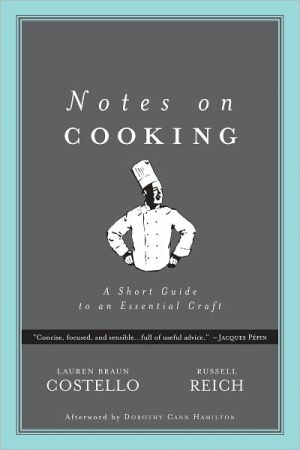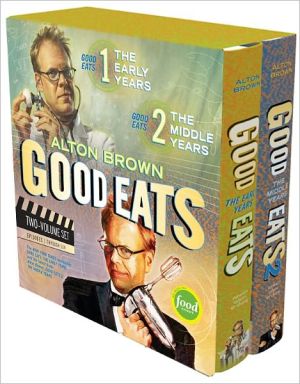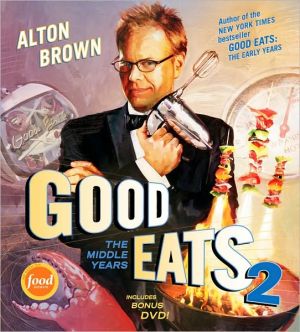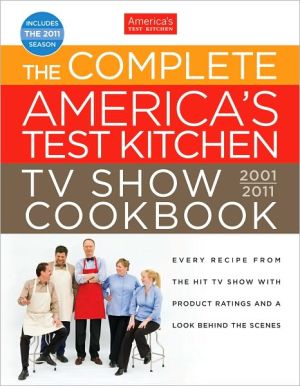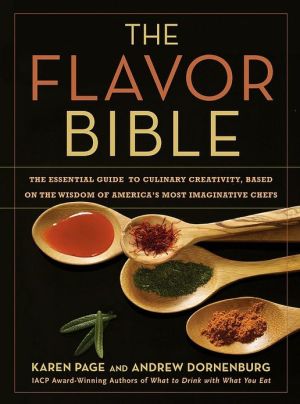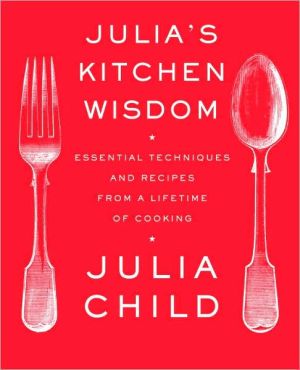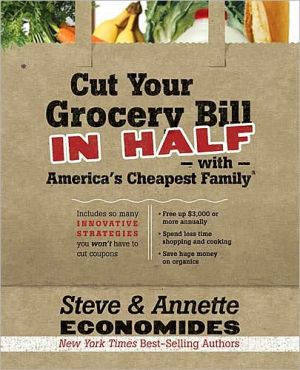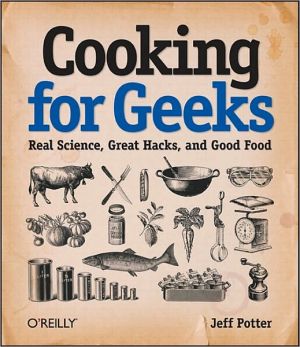Notes on Cooking: A Short Guide to an Essential Craft
Notes on Cooking is an essential primer that can help anyone become a better cook -- without a single recipe. The book's 217 notes deliver the indispensable culinary truths, the highest standards of conduct, and the timeless gems of cooking wisdom that have been taught and passed down by top chefs for generations. \ Here is what every cook needs to know, beyond the recipe. In assertive, no-nonsense language, the notes provide explanatory commentary, helpful examples, and rare quotes by great...
Search in google:
As an essential primer of immediately useful and utterly relevant guidance, this guide can help anyone become a better cook-without a single recipe. The book's 217 notes deliver indispensable culinary truths, the highest standards of conduct, and timeless gems of cooking wisdom that have been taught and passed down by top chefs for generations. The notes provide explanatory commentary, helpful examples, and insights from Alice Waters, Daniel Boulud, Georges Auguste Escoffier, Leonardo da Vinci, and many others. They also include life lessons-about how to bring delight, how to recognize quality, and how to see beauty in simplicity. For the beginner wanting to improve, the seasoned expert looking to review the highest culinary standards, or the food lover seeking a fascinating glimpse into the pursuit of epicurean excellence, Notes on Cooking provides a unique and invaluable apprenticeship. Publishers Weekly In all ways to-the-point, Costello and Reich's guidebook offer kitchen commandments for a realm that often tends to "a little of this, a little of that" thinking. Costello's culinary skills are well matched with Reich's pithy writing in more than 200 directives on everything from cooking duck to ripening fruit, for which they lay down the major rules of cooking and kitchen conduct in as few as a couple of lines. Beginning cooks will find relief in their strong declarations-"Do not stuff a turkey"; "Always preheat the oven"-instructions that, once learned by heart, make cooking easier and end with better food. The explanations for these rules are succinct but amply informative so as to please anyone who has cooked long enough to already be following them instinctively; they draw on basic kitchen science as well as the collective knowledge of culinary experts like Jeffrey Steingarten and Michael Nischan to make a case for the validity of their decrees. Some "notes" are less concretely didactic than others ("Chicken is the test of a cook's versatility," for example), or leave room for interpretation ("Dress salad lightly"), but all are brightly informative enough to help cooks make better decisions and, in the end, be more productive and happier in the kitchen. (June)Copyright © Reed Business Information, a division of Reed Elsevier Inc. All rights reserved.
\ Publishers WeeklyIn all ways to-the-point, Costello and Reich's guidebook offer kitchen commandments for a realm that often tends to "a little of this, a little of that" thinking. Costello's culinary skills are well matched with Reich's pithy writing in more than 200 directives on everything from cooking duck to ripening fruit, for which they lay down the major rules of cooking and kitchen conduct in as few as a couple of lines. Beginning cooks will find relief in their strong declarations-"Do not stuff a turkey"; "Always preheat the oven"-instructions that, once learned by heart, make cooking easier and end with better food. The explanations for these rules are succinct but amply informative so as to please anyone who has cooked long enough to already be following them instinctively; they draw on basic kitchen science as well as the collective knowledge of culinary experts like Jeffrey Steingarten and Michael Nischan to make a case for the validity of their decrees. Some "notes" are less concretely didactic than others ("Chicken is the test of a cook's versatility," for example), or leave room for interpretation ("Dress salad lightly"), but all are brightly informative enough to help cooks make better decisions and, in the end, be more productive and happier in the kitchen. (June)Copyright © Reed Business Information, a division of Reed Elsevier Inc. All rights reserved.\ \ \ \ \ \ BooklistCostello takes the many culinary lessons she has learned over the years, from master chefs and her own experience, and distills them into digestible koans for this book,"of interest to the aspiring cook" and a "stimulant to the experienced practitioner". She notes that as she draws firm lines always and never instead of usually and rarely this will likely lead readers to disagree with her on occasion or spot certain contradictions, a process she admits might be just as valuable for a deeper awareness of craft as ingesting any of her dogmatic assertions. The "notes" contained herein range from Zen-like mantras ("Do not be surprised by surprising results"); to more fundamental but essential reminders to take proper care of your knives and shop locally; to weirdly specific admonitions, such as avoiding using even numbers or symmetry when plating. Chefs will find themselves nodding along here and frowning there, but anyone who's ever wielded a whisk or screwed up a sauté will nonetheless find this book both\ \ \ ForeWordKitchen Craft. A handful of high-quality, petite non-fiction books seek to deliver content in short, pithy, declarative statements believing the technique lends authoritative credibility; the best example being Strunk and Whites The Elements of Style. One wonders why book reviews cant effectively play this game, especially now that we have another excellent example of the genre in Notes on Cooking: A Short Guide to an Essential Craft (RCR Creative Press, 978-0-9724255-1-3), by chef Lauren Braun Costello and acclaimed writer Russell Reich.\ 1. Beware the book cloaked in numerous glowing testimonials unless the blurbers have unimpeachable reputations like Daniel Boulud, Jacques Pepin, James Peterson, Lidia Matticchio Bastianich and the other heavyweights as is the case in Notes on Cooking. 2. Cooking wisdom must be timeless and applicable to cooks of all levels. A veteran of professional kitchens, Costello chides her peers to always be "open to considering new perspectives and ways of working," and counsels humility by encouraging cooks not to "bemoan the pedestrian tasks. Find pleasure in peeling a carrot, steaming rice, searing a steak, prepping, cleaning. " 3. Useful books offer nuggets on every page without requiring readers to start from the beginning. Notes on Cooking is expertly organized into 19 chapters, from Understanding the Recipe through to Presentation and Last Thought where readers are lectured: "Always be cooking. Hone your craft by doing it. Stop reading. Start cooking. " 4. That said, readers who hang on until the very end will find in the Appendices superb lists of food adjectives and 80+ flavor combinations, e.g., beets and lemon, leeks and chestnuts, sweet peas andpancetta, to name only three.\ —Matt Sutherland\ \ \ \ \ Library JournalThis small primer by restaurateur and chef Costello and coauthor Reich (Notes on Directing) delivers both practical and philosophical advice beyond what one will find in a cookbook. Its goal is to pass on knowledge that will help readers think like a chef, not merely follow a recipe. Some 217 "notes," or entries, are organized into 19 topical chapters that can be read in any order and include cross references among the notes. The notes offer simple advice like remembering to date and label perishables to lesser-known tips like how to pick the healthiest chicken in the grocer's case and testing eggs for freshness. The authors also include appendixes on flavor lexicon, classic combinations, and cooking essentials as well as 11 annotated recommended readings. VERDICT Both novice and more experienced cooks will appreciate the plethora of useful and valuable advice here. Overall, a delightful culinary resource.—Lisa A. Ennis, Univ. of Alabama at Birmingham Lib.\ \ —Lisa A. Ennis\ \
